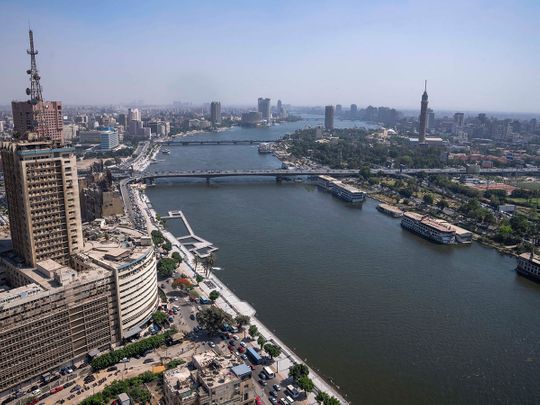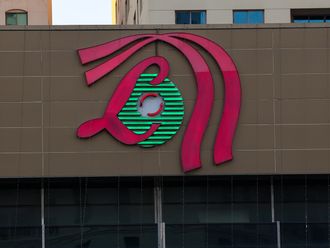
Cairo: In barely 10 days, Egypt has gone from the brink of economic disaster to unlocking more than $40 billion of investments and loans from the United Arab Emirates and International Monetary Fund, with the likelihood of more to come from Saudi Arabia and others.
On Wednesday, as part of that, it delivered its biggest-ever interest-rate hike and allowed its currency to weaken more than 38 per cent in a long-awaited flotation. It also announced its existing IMF rescue package would be more than doubled to $8 billion.
The moves were the culmination of global efforts – led by GCC nations and the IMF. Foreign investors are already hailing the turnaround and saying they expect Egypt to attract billions of dollars from bond traders in the coming months.
Next up, Saudi Arabia
The next step for the country, home to 105 million people, may be a land investment from Saudi Arabia.
Egyptian and Saudi authorities are in preliminary talks over the development rights for a northern Red Sea coast area known as Ras Gamila, people familiar with the matter told Bloomberg, asking not to be identified because the negotiations aren't public. Saudi authorities did not respond to requests for comment.
If a deal's agreed, it would see the kingdom follow neighboring UAE, which announced a $35 billion investment - the biggest in Egypt's history - in late February. Most of that will be to develop a peninsula on the Mediterranean coast called Ras El-Hekma.
Economic issues
Egypt's latest bout of economic tumult began in 2022, when Russia's invasion of Ukraine sent commodity prices surging and pushed up the cost of imported wheat and fuel. Bond investors fled en masse, pulling about $20 billion from the country.
Israel's war with Hamas in Gaza exacerbated the pressures. Some tourists stayed away from Egypt's beaches and ancient sites, while shipping attacks by Houthi militants in the Red Sea caused traffic through the Suez Canal - a critical source of income for Egypt - to dive.
The negotiations between Egyptian and Saudi authorities over Ras Gamila – which sits near the Sinai resort city of Sharm El-Sheikh and across the Red Sea from Saudi Arabia's Neom mega-project – are at early stages and could fall through, the people said.
The site's far smaller than Ras El-Hekma, which is about three times the size of Manhattan. Still, any agreement may still amount to several billion dollars.
Those, as well as even more funds expected from the IMF and World Bank, should provide Egypt with enough cash to keep its newly-floated currency steady and meet its debt obligations.
It may eventually lead to an upgrade in the credit rating of Egypt, and thus lower its borrowing costs, according to Omar Monieb, a senior analyst for the Middle East and North Africa at Eurasia Group.












